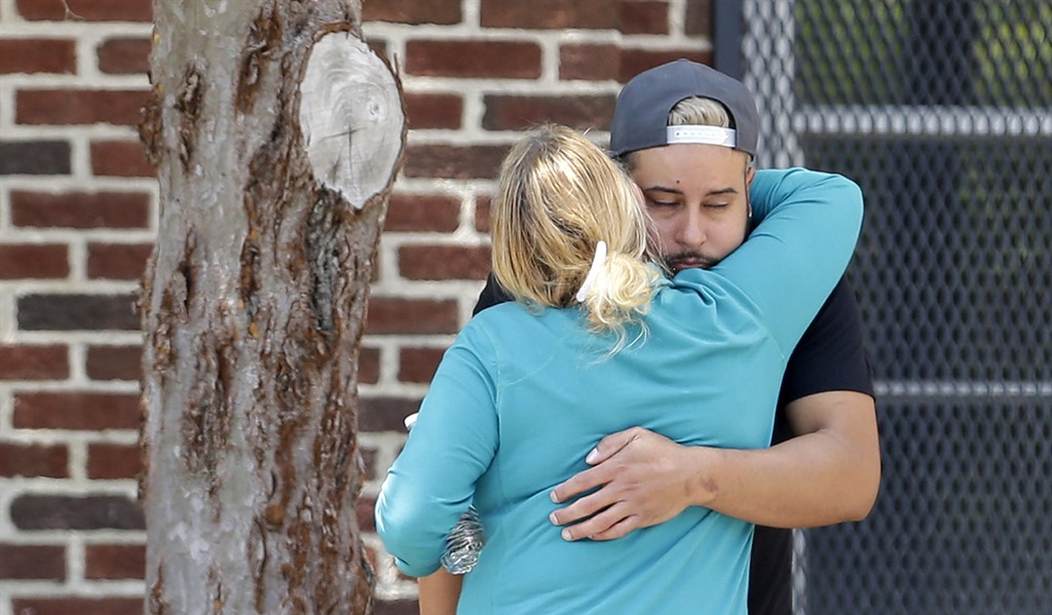People often ask, "How do you handle mean, vicious people when out in public?" The truth is I rarely encounter nastiness. It does happen, but thankfully, it is pretty rare.
In general, when people don't like me, they possess the maturity to restrain themselves from verbal road rage. I conduct myself the same way when I run into someone whose views I don't care for. At a restaurant, I said hello to a host of a left-wing cable show, and he politely returned the gesture. After all, I dislike Hamas, the Taliban and drivers who fail to use their turn signals much more.
Nor does it particularly bother me that there are some people who say unkind things. A sports commentator once asked heavyweight boxing champion Larry Holmes whether he felt bad about the punishment he inflicted on an opponent.
"No," Holmes said, "I'm in the hurt business."
I choose this path as a Republican/libertarian commentator, and I do not expect a standing ovation when I enter a room.
And, from time to time when encountering someone who disagrees with me -- depending upon the situation and my mood -- I invest the time to engage in a civil, productive conversation. Sometimes the "antagonist" reassesses his or her position.
Such a case recently took place at a restaurant. I sat at the crowded bar, and a lady -- whom I later learned was 50 years old -- sat on the stool to my right. A number of people came up to me over the course of 15 minutes, after which "Linda" said, "You are obviously well known. May I ask what you do?"
I told her I spent 30 years in talk radio, and that a few years ago I ran for governor in the California recall election.
Recommended
Oh, yes, I know who you are -- and I'm sorry, I disagree," she said.
I told her I am used to people disagreeing. "But," I said, "What's our biggest disagreement?" I asked myself,"What's the over/under how quickly she says 'Trump'?"
Instead, she said, "I grew up poor. I'll never forget the embarrassment I felt when my mother pulled out food stamps in the line at the grocery store. I'm now quite successful, but I remember the struggle. People need help, often through no fault of their own. Republicans don't get that."
"So," I said, "you think liberals are more compassionate and generous than conservatives?"
"I know they are," she said.
"Liberals are more generous with their money?"
"Oh, yes."
"They volunteer more of their time?"
"Yes."
I told her about a book called "Who Really Cares?" by Arthur C. Brooks. Then an economics professor at Syracuse University, Brooks found that no one had done a comprehensive study on whether liberals or conservatives were more likely to give to charity and were more likely to donate their time for the care of others. So, he conducted a study. Like Linda, Brooks assumed the answer would be "liberals." His findings so surprised him that he re-examined his methodology, research and results, only to reach the same conclusion. Conservatives were more generous with their money, and it was not even close. Same thing as to time devoted to others. And it had nothing to do with household income. In fact, conservative households generated less income, on average, than did liberal households.
Religion, found Brooks, plays a big role, as does one's philosophy about the role of government. Conservatives are far more likely to be religious than liberals -- the religious are more generous than the nonreligious -- and conservatives believe the needs of the needy are best addressed through private charity than through government, and they donate accordingly. Liberals who are religious, though much smaller as a percentage compared to conservatives who are religious, were just as charitable as conservatives.
I pulled out my smartphone and read Linda part of a review from the Chronicle of Philanthropy: "Breaks new ground ... In 'Who Really Cares?,' Brooks finds that religious conservatives are far more charitable than secular liberals, and that those who support the idea that government should redistribute income are among the least likely to dig into their own wallets to help others."
"I'm shocked. I really am," Linda said. "May I buy you another drink?"

























Join the conversation as a VIP Member